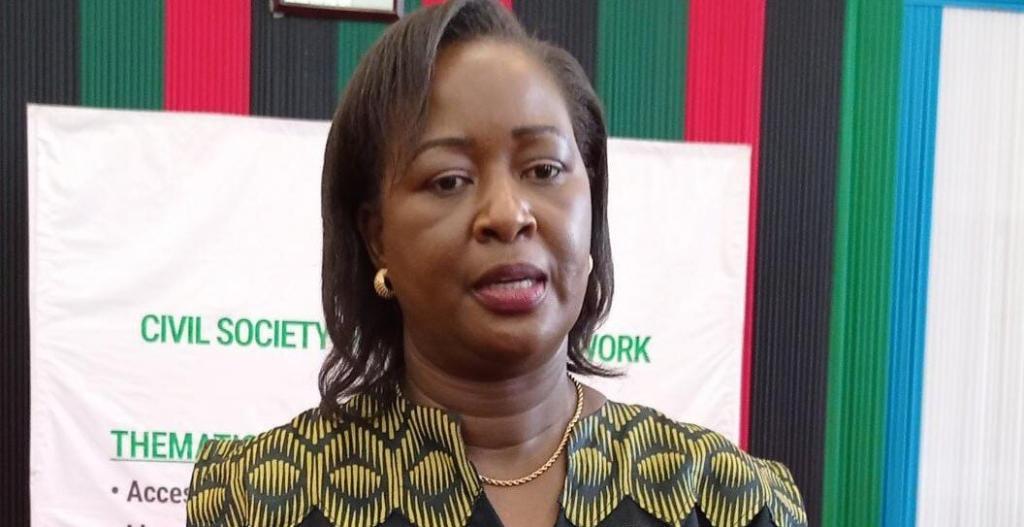
Vice President of Malawi Saulos Chilima says Malawi has a big potential to make more money from agriculture through the African Continental Free Trade Area (AfCFTA) but the country has to make tangible strides with the targets set in the National Export Strategy ll and also embrace modern ways of farming.
Chilima made the remarks in Lilongwe yesterday on 17 February, 2022, when he presided over the Agriculture Policy Conference.
The conference was organised by Civil Society Agriculture Network (CISANET) and the theme of the conference was Africa Continental Free Trade Area (AfCFTA): opportunities and challenge for agriculture in Malawi.
Speaking at the conference, the Vice President said Malawi, with over 18 million people and where eight out of every ten people depend on agriculture for their livelihoods, cannot continue to be a consuming country.
“Now, the traditional agriculture that we have talked about for many years back has changed and continues to change. We must not be stuck in the past when the world is embracing modern agricultural practices.
“Today’s agriculture has to meet quality standards, today’s agriculture has to have desired value added products, todays agriculture is looking for women and the youth to actively engage in it across a range of value chains, and today’s agriculture requires robust ICT systems,” said Chilima.
He also noted that the Malawi government signed a Memorandum of Understanding with the Republic of South Sudan to access a US$295 million market for maize flour among other products and this is a great opportunity. He then called for joint efforts in expanding Malawi’s trade base through agriculture.
“Approximately 90% of our exports are raw form, embodying limited value addition. Conversely, Malawi imports cooking oil, peanut butter, just to mention a few. Let’s all work together to turn the tables.
“The AfCFTA has a potential to deepen and expand Malawi’s trade from the current low base of which can result in welfare gains of our people. This is the time that farmers, SMEs, telecommunication companies, private sector need to rally around and join forces to make this possible. We need all hands on deck to continuously identify opportunities. Jointly resolve the challenges and bring solutions to the table,” said Chilima.

In her remarks, Deputy Minister of Agriculture Madalitso Kambauwa Wirima said Agriculture remains the backbone of Malawi’s economy and that it provides employment and income for the majority of households and critical foreign currency for other economic activities.
“Most of the sector’s contribution comes from production and over 80% of households depend on Agriculture for income generation, with most farmers trapped in subsistence farming. Our ministry is striving to ensure that we are producing enough for the country as well as producing extra for the market beyond our borders. The challenges met in the Agriculture sector are addressed to spur growth and increase exports, where interventions have been put in place through policy documents like; National Export Strategy (NES ll), National Agriculture Policy (NAP), National Agriculture Investment Plans(NAIP) and the Malawi 2063 (MW2063),” said Wirima.
Nasfam Chief Executive Officer who is also CISANET board Chairperson Dr. Betty Chinyamunyamu, made a call to government to consider coming up with one or two more crops that can add on tobacco.
She noted that other African countries have taken up new commodities like Avocado, macadamia or horticulture.
“So if we are looking at our national export strategy we need to prioritize one of the commodities where we already have competition advantage, in order for us to make meaningful impact,” said Chinyamunyamu.

She also called upon government to take the right actions on the recommendations made during the agriculture policy conference.
During the conference, participants talked how Malawi has got potential to harness the Africa continental free trade area because of the land Malawi has, as well as water that can be used for irrigation.
The speakers during the conference also addressed the need for coherence in policies and also implementation of those policies. There were also some key policies that were highlighted such as the seed bill and need to fast track this bill so that farmers can benefit by producing more.














